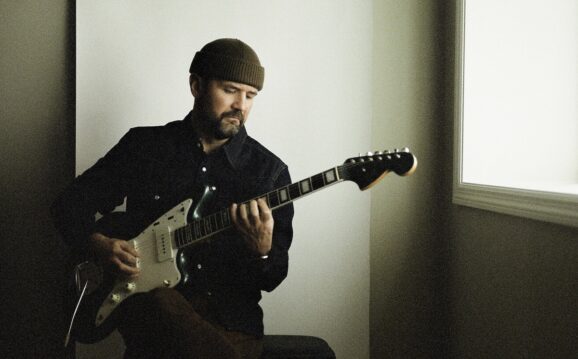[rating=10.00]
Hate him or love him, it’s hard to know who Dick Cheney is. His tenure as Vice President was mired in secrecy and backroom dealings, scoffing at the notion of transparency for transparency’s sake and operating on the assumption that he was voted in to do what he was going to do. Even now, a full decade since Cheney left the office to return to private life, much of what we know about his tenure is shadowed—just where are those millions of emails and what did they say? A brief preamble explains all this prior to the opening scenes of Vice, director Adam McKay’s latest exploration of cinema as journalism, ending with an especially apt-seeming, “we did our fucking best.”
Their best, it would seem, is fucking perfect.
Vice is one of the most powerful and important films of 2018, and another political knockout from McKay. It is a meticulously researched, beautifully presented, and surprisingly nuanced look at a man and Vice President you are wired to either love or hate. Though definitely skewed towards the latter, there’s still almost a reverence inherent in the film, as if McKay and his team seem to say, “We really don’t like him or what he did, but goddamn, we can’t not respect him.”
The film takes the same wild, irreverent style that propelled The Big Short to the cinematic greatness, mixing styles and genres and tones to create a seemingly off-beat film that simplifies complex problems enough to be explainable to Regular People. It is one-part biopic, with Christian Bale giving the performance of his career as he transforms into the former Vice President, and one-part scathing critique, with McKay using every tool in his comedic and filmmaking arsenals to pick apart the decisions and policies of Cheney and his administration.
Vice delivers on both fronts, telling a well-considered biography that expands from Cheney’s wild youth days to his post-office life. Along the way we meet a familiar cast of characters, including wife Lynne (played brilliantly by Amy Adams), Donald Rumsfeld (in a shocking performance from Steve Carrell), to, of course, President George W. Bush (channeled by Academy Award winner Sam Rockwell). Along the way, McKay diverts from the story to explain Cheney’s machinations, taking us step by step through how a wild, Yale expelled party boy could achieve the heights he did. It’s tied together by a secretive narrator (Jesse Plemmons) who explains, in plain language, the political subtext and meaning of what we’re seeing on screen.
It comes together to form a fascinating, enthralling portrait of a man and his service that explains the rise of baffling political positions that have formed over the last few decades. (“What do we believe,” a young Cheney asks a young Rumsfeld, to fits of raucous laughter.) It’s also one of the most stunning and remarkable political films ever made, effortlessly taking audiences through difficult and labyrinthine ideas and making them clear.
Packed with many of the year’s best performances, Vice is an absolute must see regardless of how you felt and feel about the subject of the film. Definitely skewing towards a liberal perspective, tonally, it’s still hard not to see the nuance in McKay’s vision—the film’s final monologue leaves us with little doubt about the respect he shows, even if only begrudgingly—that, if nothing else, appreciates that Cheney did what he thought was right, even if it presumes Cheney wasn’t. Even still, it’s hard not to be in absolute awe of McKay’s skills as a filmmaker, and there can be no doubt that Vice will be well-recognized come awards seasons.
Vice is now playing in theaters everywhere.










